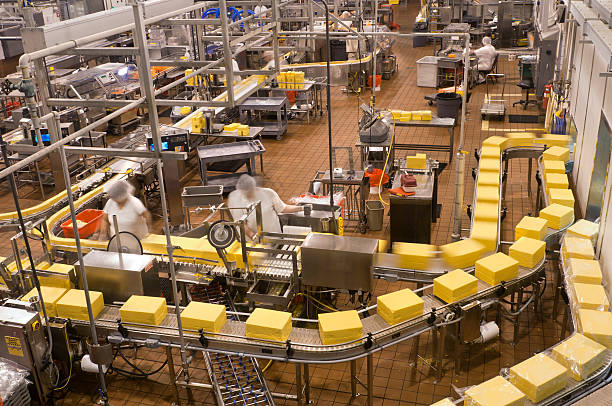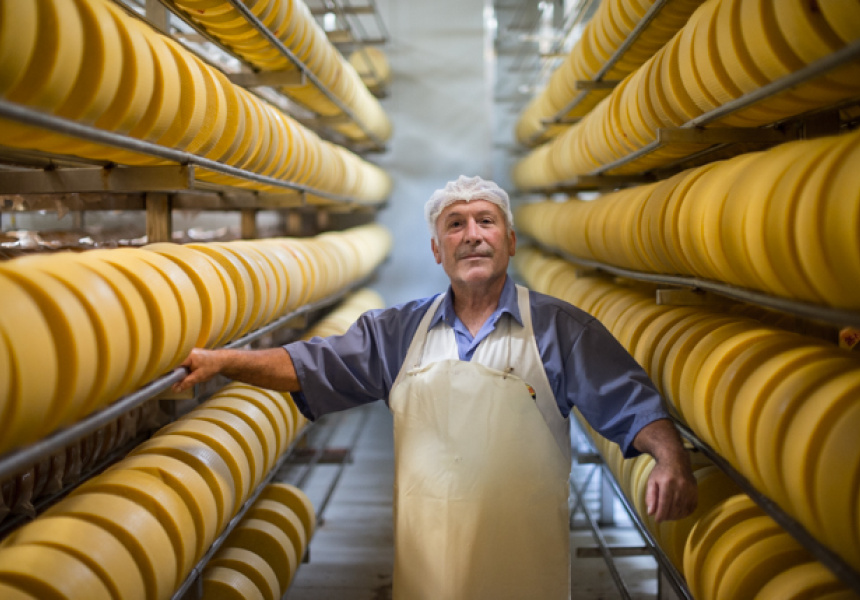Cheese Makers Melbourne: Crafting the Finest Cheeses In Your Area
Cheese Makers Melbourne: Crafting the Finest Cheeses In Your Area
Blog Article
A Comprehensive Guide to Cheese Production: Actions, Obstacles, and Quality Assurance Measures
Cheese production is an intricate process that requires thorough focus to information, from the preliminary selection of premium milk to the final stages of manufacturing. As we examine these facets, it ends up being clear that the future of cheese production will certainly be formed by progressing patterns and innovations that could redefine traditional techniques.

Review of Cheese Manufacturing
Cheese production is a complex procedure that transforms raw milk right into a diverse range of milk products, each with unique tastes and structures. The trip starts with the option of high-grade milk, which can come from numerous sources, including cows, goats, and sheep. The structure of the milk-- fat web content, protein levels, and the existence of details societies-- plays a critical duty in the end product.
The process generally entails numerous phases, consisting of pasteurization, where harmful bacteria are gotten rid of, and the addition of starter cultures and rennet, which assist in milk coagulation. When coagulated, the curds are divided from the whey, and the curds go through different therapies, consisting of cutting, food preparation, and pushing, which dramatically affect celebrity's features.
In addition, variables such as aging problems, moisture, and temperature level can drastically change the flavor profile and structure of the cheese. The art of cheese manufacturing relies heavily on the cheesemaker's know-how, as they have to stabilize scientific research and creative thinking to generate high-grade cheese. Understanding these fundamental facets is essential for appreciating the elaborate nature of cheese production and the wide range of cheeses offered in the market today.

Trick Steps in Production
Celebrity manufacturing process entails several vital actions that jointly transform raw milk right into a finished item. At first, the process starts with milk collection and quality assessment, making sure that the raw product satisfies the necessary standards for cheesemaking. Following this, the milk is pasteurized to remove hazardous microorganisms, boosting the security of the last product.
Next, particular starter cultures are included to the pasteurized milk, promoting the fermentation process. Consequently, rennet is presented to coagulate the milk, resulting in the splitting up of curds and whey.
As soon as the wanted structure is accomplished, the curds are drained and pushed right into mold and mildews, forming the cheese. Each of these steps is important in guaranteeing the quality and characteristics of the cheese produced.
Usual Obstacles Dealt With
While the cheese production procedure is thoroughly developed, various obstacles can emerge that influence both manufacturing effectiveness and item high quality. One prevalent challenge is variations in raw product high quality, particularly milk. Variants in milk make-up can impact curd formation, bring about incongruities in structure and taste. Furthermore, the sourcing of top notch milk is important; poor-quality ingredients can compromise the end product - cheese store melbourne.
Another considerable challenge is maintaining ideal fermentation conditions. Temperature and moisture changes during aging can result in unfavorable microbial development, impacting taste profiles and cheese safety and security. Staffing problems, including a lack of knowledgeable labor, can prevent procedures and lead to mistakes in manufacturing procedures.
Tools upkeep is additionally crucial; break downs can interrupt process, leading to production delays and increased costs. Governing conformity offers its read more very own collection of difficulties, as producers should adhere to strict food security standards, which can vary by area. Browsing these barriers calls for an aggressive technique, including detailed training, normal tools checks, and solid distributor partnerships to ensure a consistent and high-quality cheese result.
Top Quality Control Strategies
Making certain product consistency and safety and security counts heavily on effective quality assurance techniques throughout the cheese production process. These techniques encompass various phases, from basic material selection to end product assessment.
One critical facet is the monitoring of milk high quality, which includes testing for microbial contamination, somatic cell matters, and antibiotic deposits. Carrying out strict provider evaluations makes sure that only top quality milk is utilized, laying a solid structure for the cheese-making procedure.
During manufacturing, essential control factors (CCPs) must be recognized and checked. This consists of temperature control during pasteurization and fermentation, as well as pH monitoring throughout curd development - cheese factory melbourne. Routine sampling and evaluation of whey and curds can help spot discrepancies from preferred criteria early
Post-production, sensory evaluations, chemical analyses, and microbiological screening are necessary to verify that the end product satisfies well-known high quality criteria. Product packaging and storage problems also call for close investigate this site oversight to stop putridity and contamination.
Including a durable high quality management system, consisting of documents and traceability, supports compliance with food safety and security policies. By taking on these detailed quality assurance strategies, cheese manufacturers can significantly boost product top quality and customer depend on.
Future Trends in Cheesemaking
As the cheese manufacturing landscape evolves, cutting-edge techniques and innovations are forming the future of cheesemaking. One notable trend is the increasing use of automation and expert system (AI) in production procedures. These modern technologies boost performance, minimize labor expenses, and enable for higher precision in cheese formulation and aging, resulting in regular top quality and taste profiles.
Sustainability is one more vital focus, with cheesemakers adopting eco-friendly practices, such as sourcing milk from neighborhood ranches, using sustainable energy sources, and applying waste decrease methods. This shift not only interest eco mindful consumers but also addresses regulatory pressures for sustainable techniques.
In addition, the need for artisanal and specialized cheeses continues to rise, triggering manufacturers to discover distinct flavor mixes and ingenious aging techniques. This fad is matched by the expanding rate of interest in plant-based and non-dairy cheese alternatives, driven by dietary preferences and wellness considerations.
Furthermore, improvements in innovation help with improved traceability, permitting customers to better comprehend the beginning and manufacturing approaches of Related Site their cheese. As these fads unravel, the cheesemaking industry is poised to accept a future identified by advancement, sustainability, and a commitment to high quality.
Final Thought
In summary, cheese manufacturing incorporates an intricate interaction of procedures, difficulties, and quality control steps that are important for producing diverse cheese varieties. The choice of high-grade milk, adherence to pasteurization standards, and precise fermentation conditions are necessary for ensuring product safety and consistency. Attending to existing obstacles, such as labor scarcities and tools upkeep, along with welcoming future fads in automation and sustainability, will significantly enhance the cheese industry's ability to meet developing consumer demands and maintain high requirements.
Report this page